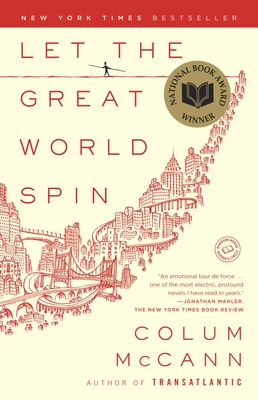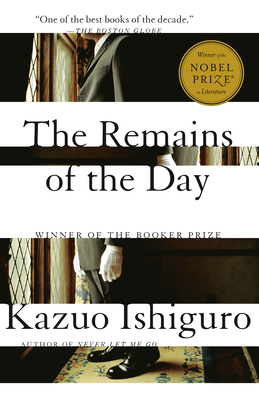Meet the Local is a series designed to uncover the differences (and similarities) in how we think and live in different parts of the world. Over the upcoming months, I’ll ask locals from places all over the world the same set of getting-to-know-you questions. This week, we meet Ben, a hometown enthusiast who has figured out the key to his happiness.

What do you like about the place you live?
A million things. Sydney is a terrific place. It’s a very active place mainly because we have such a great climate, even in the winters. You can always get out and about and be in the sun. And there’s just tons to do---the bush isn’t far away, and the whole coastline is beach beach beach beach . . . It’s a really active lifestyle. There are a ton of musical festivals every summer, there are pop up bars left right and center. I quite like that Sydney is geographically quite disparate as well. There are little valleys and basins and beachy areas that have different sorts of people so it’s not one flat lump; it’s a really interesting sort of tapestry.
What don’t you like so much?
A current gripe of mine is that Sydney and Australia as a whole is a very, very big nanny state. There are rules and guidelines for everything. As an example, I contribute so much money to the council coffers in the form of parking fines and speeding fines---it’s just silly little things. They’re trying to make you behave a certain way---and it’s a terrific standard of living, don’t get me wrong---but you have to play within the rules. It gets a bit stifling, a bit claustrophobic. If you’re not of that mindset, if you’ve experienced different things, if you’ve been to third world countries, you just find it a little annoying. It feels intensely civilized---a little too civilized, personally, for me.
What do you normally eat for breakfast?
Two pieces of toast with butter on them, and Earl Grey tea. It used to be coffee, but I’m trying to stick to one coffee per day and I need to get over that 3 PM wall, so that’s my coffee time.
What do you do for a living? How important is your job to your sense of self?
I’m called a Community Manager. I work for a company called Yelp, and as a Community Manager for Yelp I do a couple of things. I throw parties, I teach people to use the website, I write a newsletter that goes out every week (I particularly enjoy writing, so that part is really appealing to me). They often refer to it as the unofficial mayor of the city. You know the places that are opening, you get asked so many times: where’s the best place for tourists, or for dates, or to enjoy a summer’s day, or for a bush walk?
My job is very important to my sense of self. I used to work in advertising agencies in the corporate world and then I got to the point where I was making ads for a living and I did everything I could outside my work life to avoid ads---I just hated them---so there was that weird disconnect there. It was really good money, but everyone was polluted, was whinging about not having a life, and working too hard. It was the same sort of record on repeat. I’m a natural optimist but I heard myself getting into this really negative mindset. So I quit my job and was looking for something else, and then Yelp came along. I really like the idea of setting my own schedule, and try new ideas. Being able to have that freedom is really nice. It has a real people power, which is what I was looking for after the corporate world with everyone just chasing money. There was a lot of talk among my friends at the time going back to when you’re young, when you have to go to school and get good grades. Why? To get into university. And then you have to do well at university---why? To get a good job. And then you have to get a good job---why? To earn money. And then you’ve got to get promotions---why? To earn more money. Money is just the root of all evil. What we’re doing at the moment, it’s not the antithesis of that, but it’s more about community, being hyper local.
What do you do for fun?
I like being in nature, so I play a ton of sport. Swim and surf and beaches are so close that every weekend I go for a swim. I really like music; I go to a lot of music festivals. I read a lot. I really enjoy writing.
How often do you see your family? Tell me what you did the last time you saw them.
I’m trying to buy an apartment in the city right now, which is shockingly difficult. I think we’re the second most expensive city in the world right now to buy real estate – a half a million gets you nothing. So I moved back home with my mum to try and save, otherwise it’s just an untenable position to be renting and trying to buy. So I see my mum a lot. My twin sister lives in Denver, and my brother lives in London, so we’re quite spread out, but we Skype at least once a week, maybe twice. And we try to have at least one family holiday a year, where we all meet up in some destination.
What’s your biggest dream for your life?
I want to keep traveling and I want to write, whether it’s for my own amusement or professionally. Other than that, it’s fairly simple. I don’t want to invest in properties or anything like that – I just want a house I can live in and a life in the sun, a family at some point down the track, definitely a dog – a pug – and that’s it. That’s pretty much it. And to live somewhere I can be in touch with nature.
If you could live anywhere in the world, where would it be? Why?
I really feel an affinity for second and third world countries, where the boundaries are a little bit looser and you can do more things. You can go shoot a gun in the hills if you want, you can take a car and drive wherever you want, you can camp wherever you want, because the land is free – not everyone owns every single inch of land like they do here. So somewhere like Mexico or Morocco would be incredible.
What are you most proud of?
This might sound quite trite, but I’m quite proud of figuring out what makes me happy and adjusting my life to follow those lines. I’ve figured out that the more simplistic life is, the easier it is to be happy. If you have worries and stresses and bigger things to look after, you can’t focus and you can’t really get true happiness. The people that have the least are the happiest.
How happy would you say you are? Why?
I’m a massive optimist, I can see the good in anything, so I think I’m probably a nine. I was probably around a seven before. The downside of being a natural optimist is that you tend to stay in situations longer than you should because you can always see the good in them, even if they’re crap.
The change happened over the course of a year. I had a really shitty year a couple of years ago where my dad died. He’d worked so hard to provide for the family and it was really, really sudden. He was riding a motorbike in the Himalayas. He was a mild mannered accountant, and he went on this trip of a lifetime and didn’t come back. That was when I sort of found myself at a crossroads, asking myself if the corporate life was right for me. My dad was a self-made man, an immigrant from Pakistan. He came here with nothing and built a whole life up and all of the sudden, things were taken away. So it sort of gave me a bit of immediacy and made me value my time a bit more. I realized you can work and be happy at the same time – so that was my epiphany.
Check out previous answers from locals in Lisbon, Sarajevo and London. Want to participate in Meet the Local or know someone who does? Email liz@thingsthatmakeus.com for more details.







 My family takes a bus from Aix to Cassis, a small beach town not far from Aix. While my parents wander the streets and visit shops, my sister and I lay out our towels on the pebbly beach and soak in the Mediterranean sun with all the other bronzed bathers. I sit up, my arms wrapped around my knees, and stare out over the sea, imagining the Greeks who originally colonized this place looking at the same view thousands of years ago. It probably hasn’t changed very much since then.
My family takes a bus from Aix to Cassis, a small beach town not far from Aix. While my parents wander the streets and visit shops, my sister and I lay out our towels on the pebbly beach and soak in the Mediterranean sun with all the other bronzed bathers. I sit up, my arms wrapped around my knees, and stare out over the sea, imagining the Greeks who originally colonized this place looking at the same view thousands of years ago. It probably hasn’t changed very much since then.
 I first lay eyes on the Eiffel Tower, that eternal symbol of France, in the summer when I am 15 years old. I haven’t even had my first kiss yet, but I am filled with romantic visions of Paris — ones that I’ve carefully cultivated during repeated viewings of Amélie and Before Midnight.
I first lay eyes on the Eiffel Tower, that eternal symbol of France, in the summer when I am 15 years old. I haven’t even had my first kiss yet, but I am filled with romantic visions of Paris — ones that I’ve carefully cultivated during repeated viewings of Amélie and Before Midnight.






 A few story collections I'm currently enamored with:
A few story collections I'm currently enamored with: 









